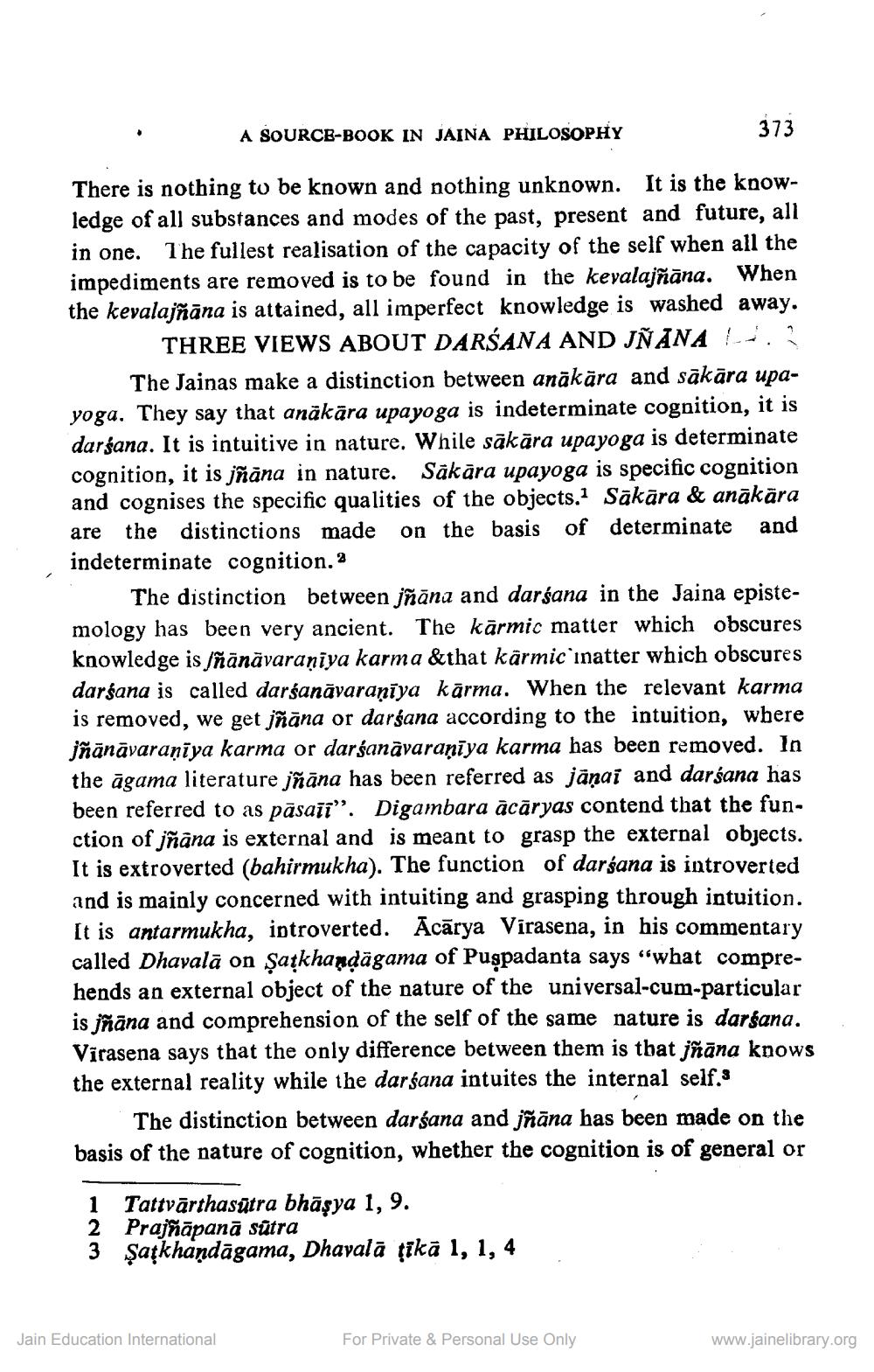________________
A SOURCB-BOOK IN JAINA PHILOSOPHY
373
There is nothing to be known and nothing unknown. It is the knowledge of all substances and modes of the past, present and future, all in one. The fullest realisation of the capacity of the self when all the impediments are removed is to be found in the keyalajñāna. When the kevalajñāna is attained, all imperfect knowledge is washed away.
THREE VIEWS ABOUT DARŠANA AND JÑANA _.?
The Jainas make a distinction between anākāra and sākāra upayoga. They say that anākāra upayoga is indeterminate cognition, it is darśana. It is intuitive in nature. While sākāra upayoga is determinate cognition, it is jñāna in nature. Sākāra upayoga is specific cognition and cognises the specific qualities of the objects. Sākāra & anākāra are the distinctions made on the basis of determinate and indeterminate cognition. 2
The distinction between jñāna and darśana in the Jaina epistemology has been very ancient. The kārmic matter which obscures knowledge is liñānāvaraniya karma &that kārmic inatter which obscures darśana is called darśanīvaraniya kārma. When the relevant karma is removed, we get jñāna or darśana according to the intuition, where jñānāvaraṇīya karma or darśanavaranīya karma has been removed. In the āgama literature jñāna has been referred as jāņai and darśana has been referred to as pāsail”. Digambara ācāryas contend that the function of jñāna is external and is meant to grasp the external objects. It is extroverted (bahirmukha). The function of darsana is introverted and is mainly concerned with intuiting and grasping through intuition. It is antarmukha, introverted. Acārya Virasena, in his commentary called Dhavalā on șațkhandägama of Puşpadanta says "what comprehends an external object of the nature of the universal-cum-particular is jñāna and comprehension of the self of the same nature is darśana. Virasena says that the only difference between them is that jñāna knows the external reality while the darśana intuites the internal self.
The distinction between darśana and jñāna has been made on the basis of the nature of cognition, whether the cognition is of general or
1 2 3
Tattvārthasūtra bhāşya 1, 9. Prajiāpana sutra Şafkhandāgama, Dhayalā șikā 1, 1, 4
Jain Education International
For Private & Personal Use Only
www.jainelibrary.org




